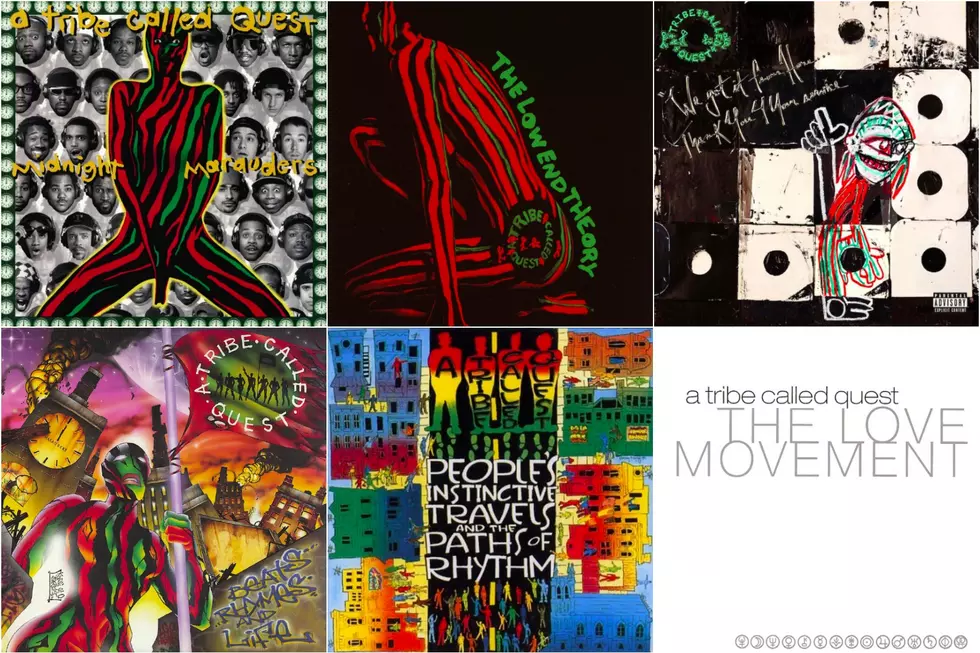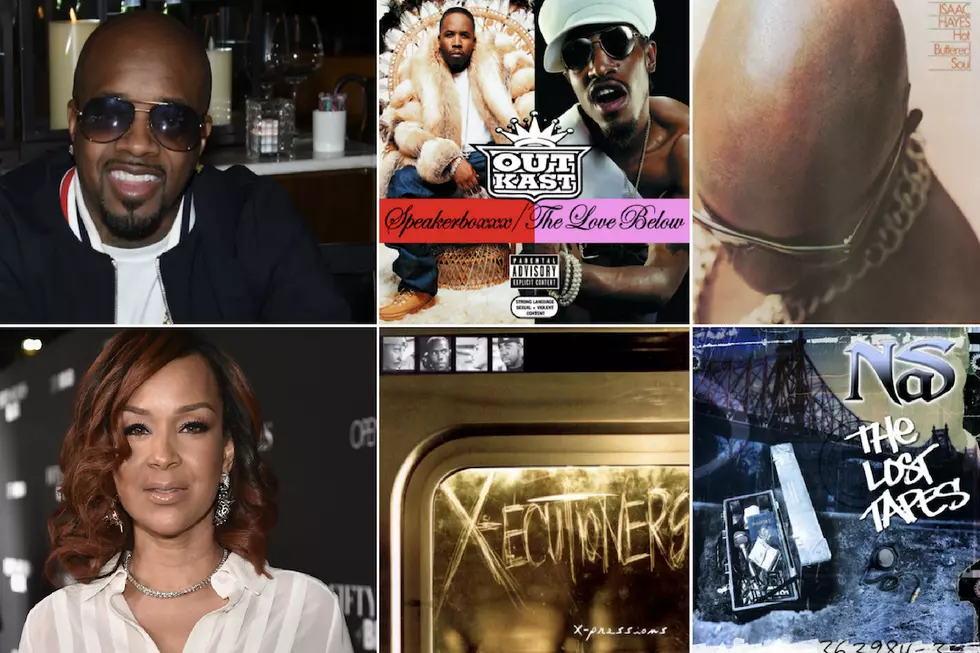
The Best Release Date Ever? September 29 in Hip-Hop History
On this day in 1998, seminal albums from OutKast, Black Star, A Tribe Called Quest, Brand Nubian and Jay-Z all hit stores at the same time. Here's a look at all five, plus another notable release from six years earlier.
1992: Compton's Most Wanted release Music to Driveby, their last album for eight years
Compton's Most Wanted, the crew that launched the career of MC Eiht, put out their third record, Music to Driveby. Its lead single, "Hood Took Me Under," sampled Isaac Hayes' cover of Burt Bacharach's "Walk on By." After the record, the group split up, with Eiht embarking on a successful solo career that began with We Come Strapped in 1994. But they re-formed in 2000 and put out Represent, with another pair of albums released in 2006.
1998: Jay-Z blows up with Vol. 2... Hard Knock Life
Reasonable Doubt and In My Lifetime, Vol. 1 had sold well, but Jay-Z became a household name with his third album. Vol. 2... Hard Knock Life. It sold 5 million copies -- still his most successful to date -- and won a Grammy for Best Rap Album. The first single was the de facto title track, "Hard Knock Life (Ghetto Anthem)," which sampled "It's the Hard Knock Life" from the '70s musical Annie. Jay-Z didn't think it was odd to sample a showtune because the connection between the orphans' song and the life he was writing about was obvious.
"You know, I knew how people in the ghetto would relate to words like, 'Instead of treated we get tricked and Instead of kisses we get kicked,' he said. "Its like when we watch movies were always rooting for the villain or the underdog because that's who we feel we are. It's us against society. And, to me, the way the kids in the chorus are singing Its a hard-knock life is more like they're REJOICING about it. Like they're too strong to let it bring them down. And so that's also the reason why I call it the 'Ghetto Anthem.'
1998: OutKast answer questions about their future on Aquemini
After a period where there were questions regarding whether or not they were breaking up, OutKast answered everybody with Aquemini. The title came from a merging of their zodiac signs, Aquarius (Big Boi) and Gemini (Andre 3000), and the songs were an equal blend of Big Boi writing about the recent changes in his life and Andre 3000's other-worldliness.
1998: A Tribe Called Quest release The Love Movement and breakup
During their summer 1998 tour with the Beastie Boys, A Tribe Called Quest regularly announced from the stage that their next album, The Love Moment, would be their last. "We're splitting up basically because we want to express ourselves in different ways," Ali Shaheed Muhammad later said. "We don't want to ruin TCQ in the ways that we want to express ourselves. We don't think that fans appreciate it. So it's time to say good-bye to Tribe. It was a good, long run [but] it's time for us to start something new."
The album featured cameos by Busta Rhymes, Mos Def, Noreaga and Redman. Always among the most mellow of hip-hop acts, A Tribe Called Quest were even more laid back on The Love Movement, which ran contrary to the more bombastic sounds coming out of the commercial acts of the day. Still, the record debuted at No. 3 on the Billboard 200 and went gold.
1998: Black Star's album bridges the Native Tongues and Soulquarians
As the Native Tongues scene was declining in commercial appeal, two young rappers who were associated with the scene, formed Black Star. The result, Mos Def & Talib Kweli Are Black Star, helped redefine conscious rap in the age of Bad Boy. They would soon join forces with like-minded hip-hop artists like Common, Questlove and D'Angelo to create the Soulquarians collective. Although Mos Def, who changed his name to Yasiin Bey in 2011, and Kweli have occasionally worked together since, this remains Black Star's only album.
1998: Brand Nubian reunites for Foundation
Seven years after Grand Puba and DJ Alamo left Brand Nubian, they rejoined Lord Jamar and Sadat X for Foundation, the first album to feature the group's original lineup since their 1990 debut One for All.
Buckwild, who produced a pair of tracks on the album, told Complex that the strong and frequently differing musical opinions of each group member wasn't an obstacle this time around. “It’s hard working with three people to pick out beats. It’d be a beat Puba would like, but Jamar wouldn’t like it, so it was quite an experience. Whenever you’re dealing with more than one personality it can be a hassle, but those times it wasn’t. Those were dope sessions."
More From TheBoombox









